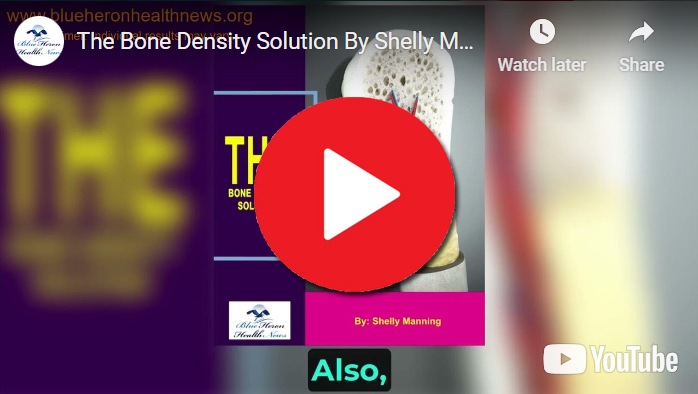
The Bone Density Solution by Shelly Manning As stated earlier, it is an eBook that discusses natural ways to help your osteoporosis. Once you develop this problem, you might find it difficult to lead a normal life due to the inflammation and pain in your body. The disease makes life difficult for many.
How can one maintain bone density during aging?
Maintaining bone density during aging is crucial for preventing osteoporosis and fractures. Here are comprehensive strategies to help maintain bone density as one ages:
1. Nutritional Support
a. Calcium Intake:
- Daily Requirements: Aim for at least 1,000 mg of calcium per day for adults, increasing to 1,200 mg for women over 50 and men over 70.
- Sources: Dairy products, fortified plant-based milks, leafy green vegetables, almonds, and calcium-fortified foods.
b. Vitamin D:
- Daily Requirements: Ensure an intake of 600 to 800 IU of vitamin D per day.
- Sources: Sun exposure, fatty fish, fortified dairy products, and supplements if necessary.
c. Protein:
- Bone Matrix Support: Include adequate protein to support bone matrix formation.
- Sources: Lean meats, poultry, fish, dairy, legumes, nuts, and seeds.
d. Other Nutrients:
- Magnesium: Found in whole grains, green leafy vegetables, nuts, and seeds.
- Vitamin K: Found in green leafy vegetables like spinach, kale, and broccoli.
- Phosphorus: Found in dairy, meat, and whole grains.
- Potassium: Found in bananas, oranges, potatoes, and spinach.
2. Regular Physical Activity
a. Weight-Bearing Exercises:
- Activities: Walking, jogging, climbing stairs, dancing, and hiking.
- Frequency: At least 30 minutes most days of the week.
b. Resistance Training:
- Activities: Weightlifting, resistance band exercises, and body-weight exercises like push-ups and squats.
- Frequency: Two to three times a week, with rest days in between.
c. Balance and Flexibility Exercises:
- Activities: Tai Chi, yoga, and Pilates.
- Benefits: Improve balance and coordination, reducing the risk of falls.
3. Lifestyle Modifications
a. Avoid Smoking:
- Impact: Smoking can decrease bone mass and increase the risk of fractures.
- Action: Seek support to quit smoking if necessary.
b. Limit Alcohol Consumption:
- Moderation: Limit alcohol to no more than one drink per day for women and two for men.
- Impact: Excessive alcohol can interfere with the body’s ability to absorb calcium.
c. Caffeine Intake:
- Moderation: Limit caffeine intake, as excessive amounts can interfere with calcium absorption.
- Sources: Coffee, tea, soda, and energy drinks.
4. Medical Management
a. Regular Bone Density Tests:
- Frequency: Every two years or as recommended by a healthcare provider.
- Purpose: Monitor bone health and detect early signs of osteoporosis.
b. Medications:
- Osteoporosis Treatments: Medications like bisphosphonates, hormone replacement therapy, and others may be prescribed if necessary.
- Consultation: Always discuss the benefits and risks with a healthcare provider.
5. Fall Prevention
a. Home Safety:
- Modifications: Remove tripping hazards, use non-slip mats, install grab bars in the bathroom, and ensure good lighting.
- Assistive Devices: Use canes or walkers if recommended.
b. Vision and Hearing:
- Regular Check-Ups: Ensure vision and hearing are checked regularly and corrected if needed.
- Impact: Good vision and hearing are crucial for maintaining balance and preventing falls.
6. Hydration and Overall Health
a. Adequate Hydration:
- Importance: Proper hydration supports overall health, including bone health.
- Recommendations: Aim for at least 8 glasses of water per day, more if active or in hot climates.
b. Manage Chronic Conditions:
- Conditions: Diabetes, rheumatoid arthritis, and other chronic conditions can impact bone health.
- Action: Manage these conditions with the help of healthcare providers to minimize their impact on bones.
7. Mental and Emotional Well-being
a. Stress Management:
- Impact: Chronic stress can affect bone health through hormonal pathways.
- Techniques: Practice relaxation techniques such as meditation, deep breathing, and mindfulness.
b. Social Support:
- Engagement: Stay socially active to enhance overall well-being, which can positively influence physical health.
Summary
Maintaining bone density during aging requires a multifaceted approach that includes proper nutrition, regular physical activity, lifestyle modifications, medical management, fall prevention, and overall health maintenance. Regular check-ups with healthcare providers and proactive measures can help maintain strong bones and reduce the risk of fractures as one ages.
The Bone Density Solution by Shelly Manning As stated earlier, it is an eBook that discusses natural ways to help your osteoporosis. Once you develop this problem, you might find it difficult to lead a normal life due to the inflammation and pain in your body. The disease makes life difficult for many.
